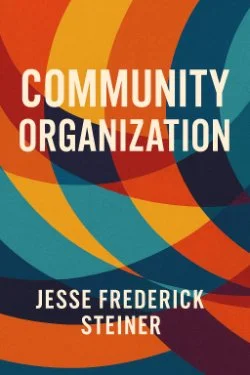By Jesse Frederick Steiner
In Community Organization, Jesse Frederick Steiner offers a pioneering exploration of how communities evolve, organize, and mobilize to meet collective needs. First published in 1925, this seminal work remains a cornerstone in the fields of sociology and social work, providing timeless insights into the dynamics of community life.
Steiner masterfully examines the interplay between economic forces, social institutions, and grassroots movements, tracing the development of key initiatives such as the playground movement, school-community centers, public health campaigns, and the rise of the American Red Cross. Through detailed case studies and philosophical reflections, he reveals how communities can transform from fragmented groups into cohesive, purpose-driven entities.
Whether you're a student of social sciences, a community leader, or simply passionate about civic engagement, Community Organization offers a rich, thoughtful framework for understanding and shaping the social fabric of our lives.
The Century Co. NY. London. 1825. 401p.



